Fiction
Fiction
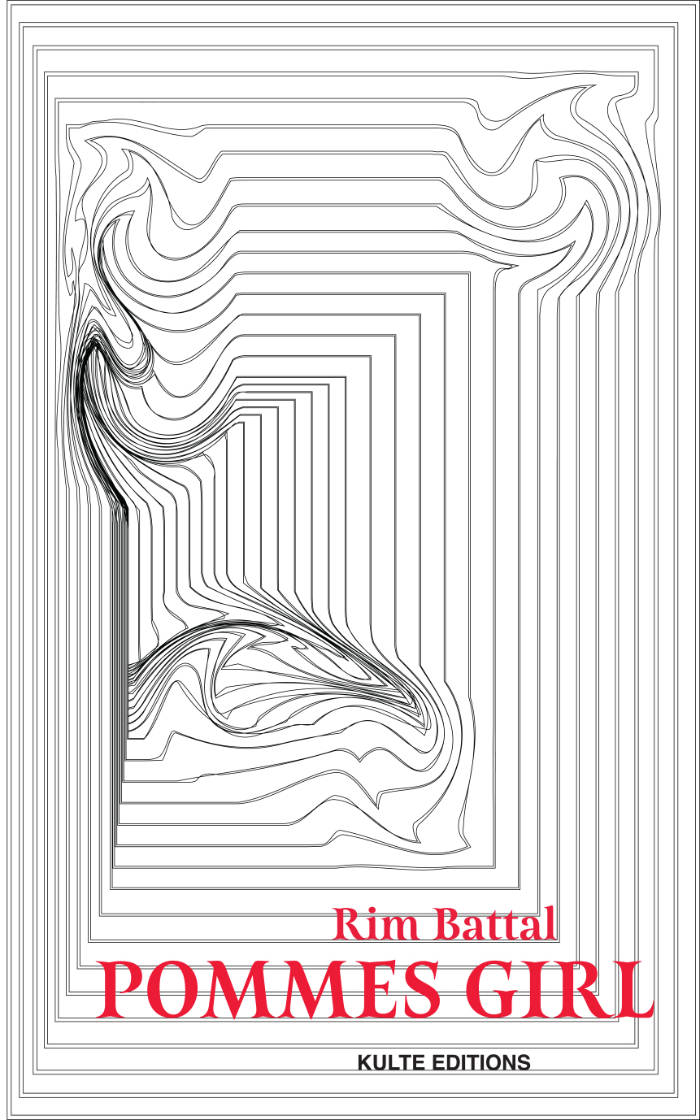
Pommes Girl / أحتفل بالحياة التي تحتفل بي
The story of a meeting between a woman and a man linked by music for one night, in a nuptial dance of bodies and words doomed to failure: an ode to desire by the Franco-Moroccan poetess.
Rim Battal (born 1987 in Casablanca, lives and works between Paris and Rabat since 2012) is a French artist and poet.
Edited by Yasmina Naji.
Translated into Arabic by Abdelilah Khattabi.

The Waterfront Journals (US edition)
David Wojnarowicz came to fame in the 1980s as a radical artist whose work challenged the boundaries of art, making him, for a time, the object of Jesse Helms's conservative backlash. Before his death in 1992, he was established as an outspoken AIDS activist, anticensorship advocate, and groundbreaking artist and writer. New York called him a "spokesman for the unspeakable," and The New York Times declared that "his most lasting legacy will be as a writer."
The Waterfront Journals is a collection of his early works of autobiographical fiction. Written as short monologues, each is in the voice of one of the many people he encountered in his travels throughout America in the late 1970s and early 1980s, when he was living on the street.
Wojnarowicz stumbles upon his characters in bus stations, at the side of the road, in hotels, coffee shops, and back alleys, where their interactions are less than epic, but unnervingly intimate. The Waterfront Journals is a testament to their identities, and of Wojnarowicz's grace as a writer.
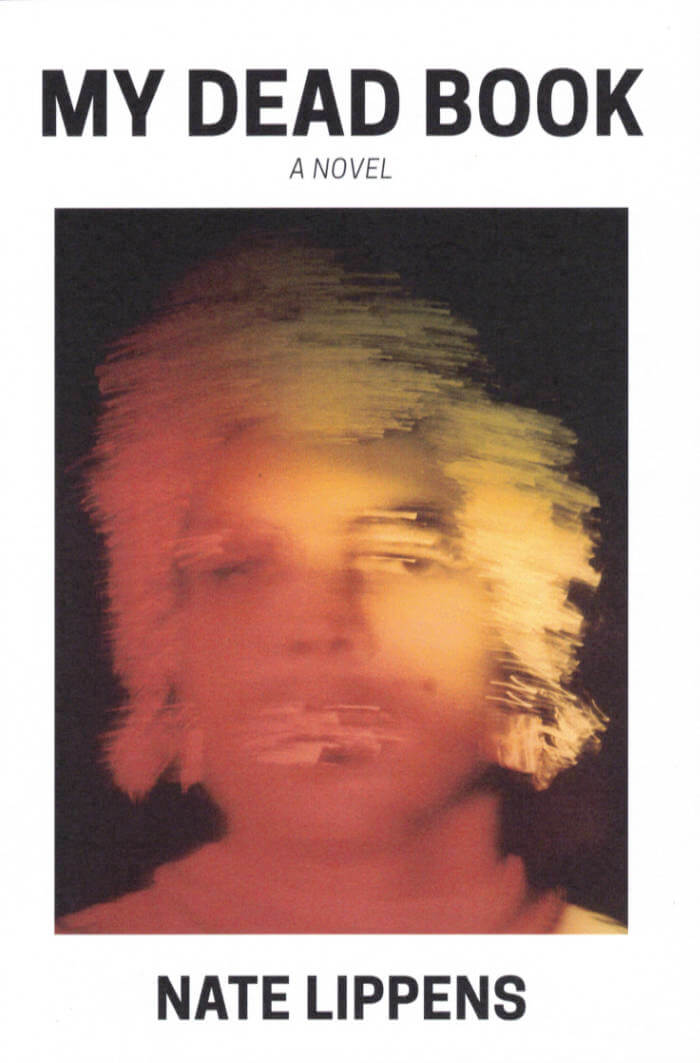
My Dead Book: A Novel
My Dead Book is a novel composed of nonlinear vignettes and fragments about a queer man approaching his fiftieth birthday who is haunted by insomnia and his past. In the dead of night, he remembers his friends who died in the late 1980s and 1990s, his years as a teenage throwaway and sex worker, and ruminates on working class survival, queer aging, AIDS, and whether he has outlived his place in the world.
“What a blistering book—with My Dead Book, Nate Lippens has created something truly fucking great. It's as if the storied stars of Lou Reed's 'Walk on the Wild Side' overshot Manhattan and wound up in Wisconsin, broke and blue with cold and depressed beyond belief by the thought that this nowhere is now home. It's a bitter pill, but I love bitterness, and who doesn't love pills?”— Derek McCormack, author of Castle Faggot
“There’s no doubt to this book. You’d think that was a flaw but it’s been burned away. My Dead Book is not short though it is brief. It’s loving, bittersweet, and actually courageous because it tells a story that is slightly unbearable because it’s all secret, awful hard bad secrets and funny as hell. Nate’s balancing act works because the heart of it (this novel) is true even though it’s often heartless. It’s simple. He knows what things are worth. When you need the sea or a bird they’re there like they never were before.”
— Eileen Myles, author of Afterglow

Diego Garcia (Semiotext(e) / Native Agents)
Natasha Soobramanien, Luke Williams
Edinburgh, 2014. Two writer friends, Damaris and Oliver Pablo, escape London, the city that killed his brother. They spend their days trying to get to the library, bickering over their tanking bitcoin, failing to write or resist the sadness. Then they meet Diego, a poet. He tells them he is named for his mother’s island in the Chagos Archipelago, which she and her community were forced to leave by British soldiers in 1973. Damaris and Oliver Pablo become obsessed with this notorious episode and the continuing resistance of the Chagossian people, and want to write in solidarity. But how to share a story that is not theirs to tell? And how to account for a loss not theirs to grieve? A tragicomedy interrogating the powers of literature alongside the crimes of the British government, Diego Garcia is a collaborative fiction that opens up possibilities for the novel and seeks other ways of living together.
Natasha Soobramanien and Luke Williams are the authors of Genie and Paul and The Echo Chamber, respectively. They used to live in Edinburgh but now live in Brussels, across the park from one another, where they meet up every day for a walk.
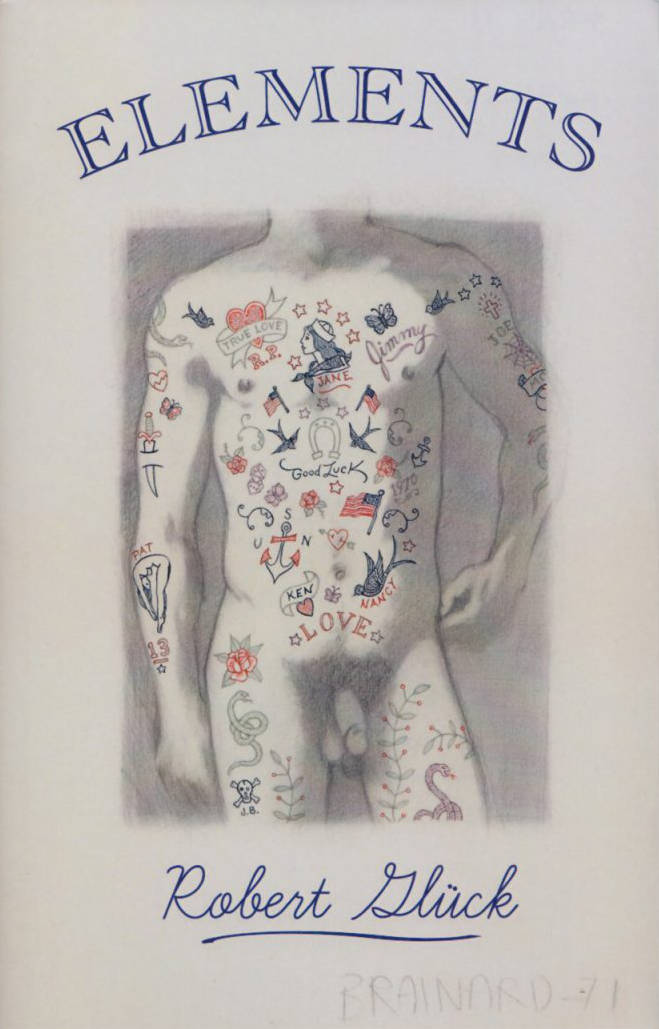
Elements
This collection of stories by Robert Gluck was originally published in 1982 in San Francisco by Four Seasons Foundation under the title ELEMENTS OF A COFFEE SERVICE.
"Bob's fiction is actually quite friendly yet he cuts it with a knife. Bob's gift to the history of letters I think is the uncanniness of his flow. He pulls down the page like a shade, it's masterful what he does. His page is more filled with light than words, really. More filled with temperature too." - Eileen Myles, from the preface to Elements

Fieldnotes: Issue 4
The fourth issue of FIELDNOTES contains new work by:
Adeola Titiloye, ajw, Fanny Howe, Will Alexander, Michael O’Mahony, Agnieszka Szczotka, Renee Gladman & Isabel Mallet, Can Xue, Karen Gernant & Chen Zeping, Tony Brooks, Nwuguru Chidiebere Sullivan, Mat Jenner, Alba Schloessingk, Camille Roy, Pete Segall, Johanna Hedva, Beihua Guo, Cedar Sigo, KP Culver
FIELDNOTES is an artist-run publishing project based in Newham in east London, aiming to promote and support non-conforming creative practices that pioneer new cultural forms.

Do Everything in the Dark (2023)
Faced with photos of a once-tumultuous New York art world, the narrator's mind in this scathing, darkly funny novel begins to erupt. Memories jostle for center stage, just as those that they are about always did. These brilliant but broken survivors of the '80s and '90s have now reached the brink of middle age and are facing the challenge of continuing to feel authentic. Luminous with imagery, cackling with bitter humor, and with a new foreword by the author, this roman a cle spares no one.
First published in 2003, Gary Indiana's turn-of-the-millennium novel traces the lives of a loosely connected group of New York artists and the dissolution of their scene.
During the summer of 2001, the narrator of Do Everything in the Dark, a gallery curator, receives intermittent dispatches from his far-flung friends, many of whom resemble well-known figures in the art and intellectual worlds, who are spread out across the globe, from Istanbul to Provincetown to Santa Fe. Seeking various reprieves from a changed New York, the long-festering, glossed-over incompatibilities of these aging bohemians blossom into exotic and unbearable relief. Beneath the contemporary excesses Indiana chronicles, we can see the outlines of the earlier New York bohemia captured by Dawn Powell.
Arguably Indiana's most intimate, internal, and compassionate work to date, Do Everything in the Dark is a chilling chronicle of madness and failure, success and disappointment, and the many ways love dies in a world people find increasingly unlivable.

Les Lichennes
A novel of anticipation anchored in queer ecologies, a frenetic odyssey interwoven with songs and short poems, mixing the genres of feminist science fiction, young adult literature, space-opera and marvelous fable.
Marine Forestier lives and works in Brussels. Her writing work mixes poetry and science fiction. She collaborates on several comic book projects with illustrators Bianca Dall'Osso and Nino André and is also part of La Satellite, an artist collective and curatorial platform based in Brussels, which works around feminisms in contemporary science fiction. She publishes her texts in numerous journals and zines.

Hit Parade of Tears: Stories
Izumi Suzuki had ideas about doing things differently, ideas that paid little attention to the laws of physics, or the laws of the land. In this new collection, her skewed imagination distorts and enhances some of the classic concepts of science fiction and fantasy.
A philandering husband receives a bestial punishment from a wife with her own secrets to keep; a music lover finds herself in a timeline both familiar and as wrong as can be; a misfit band of space pirates discover a mysterious baby among the stars; Emma, the Bovary-like character from one of Suzuki's stories in Terminal Boredom, lands herself in a bizarre romantic pickle.

The Long Form
The Long Form is the story of two people composing a day together. It is a day of movements and improvisations, common and uncommon rhythms, stopping and starting again. As the morning progresses, a book – The History of Tom Jones by Henry Fielding – gets delivered, and the scope of the day widens further. Matters of care-work share ground with matters of friendship, housing, translation, aesthetics and creativity. Small incidents of the day revive some of the oldest preoccupations of the novel: the force of social circumstance, the power of names, the meaning of duration and the work of love. With lightness and precision, Kate Briggs renews Henry Fielding’s proposition for what a novel can be, combining fiction and essay to write an extraordinary domestic novel of far-reaching ideas.
Kate Briggs grew up in Somerset, UK, and lives and works in Rotterdam, NL, where she founded and co-runs the writing and publishing project ‘Short Pieces That Move’. She is the translator of two volumes of Roland Barthes’s lecture and seminar notes at the Collège de France: The Preparation of the Novel and How to Live Together, both published by Columbia University Press. The Long Form follows This Little Art, a narrative essay on the practice of translation. In 2021, Kate Briggs was awarded a Windham-Campbell Prize.

BRICKS FROM THE KILN #5
Andrew Walsh‐Lister, Matthew Stuart
Bricks from the Kiln is a semi-yearly journal and multifarious publishing platform established in mid-2015 to support critically minded and explorative writing on and around art, design and literature. Edited by Matthew Stuart and Andrew Walsh-Lister, the forthcoming issue, number five, begins with a single sentence:
blankets topologies in glistening snow and blood — produces instructional spattering, again and again — coughs up clotted network diagram hairballs of illegibility — parasitically draws on / from Thomas Browne’s quincunx — meets for The Big ROAR tomorrow, yesterday — lifts loud cows off the page, aloud — flips the coin of language, heads or tails? — politely speaks on writing heard yet seen — twists tongues, transliterates and teases — makes contact with ancestral spirits — traverses the foothills of La Marquesa, past and present — is the Spectre at the feast — (re)traces polymorphous concrete poems — dashes, gestures, speaks, breathes, moves, joyness — is, as ever, tentative, incomplete and inconsistent.
Contributions by Helen Marten, Rebecca May Johnson, Johanna Drucker, Louis Lüthi, Daisy Lafarge, Holly Pester, Ursula K. Le Guin, Quinn Latimer, Stefan Themerson, Slavs and Tatars, Ashanti Harris, Catalina Barroso-Luque, Kevin Lotery, Bronac Ferran with Greg Thomas and Astrid Seme with Alex Balgiu.
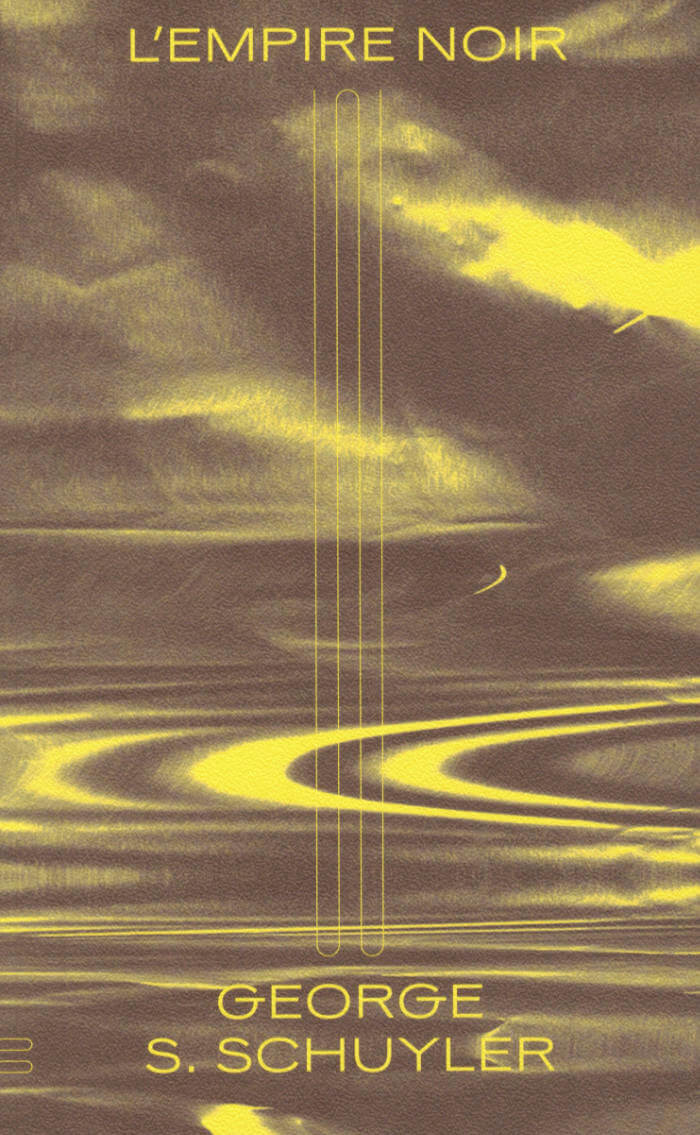
L'Empire Noir
Après une campagne militaire fulgurante, l’organisation secrète du redoutable Dr Belsidus a chassé les puissances occupantes du sol africain et s’est rendue maitre de l’ensemble du continent, unifié pour la première fois en un gigantesque empire. L’expansion a démarré et l’édification d’une civilisation d’un genre inédit est en marche. Mais les nations européennes, après s’être fait la guerre, s’apprêtent à revenir. Une course s’engage entre l’Internationale noire et les appétits impérialistes : sabotages, espionnage, guerre technologique ou bactériologique, les héros et héroïnes de L’Internationale noire né reculeront devant rien pour sauvegarder cette indépendance acquise de haute lutte.
Dans ce second volet du roman-feuilleton qui fit la réputation de G. Schuyler, retrouvez les nouvelles aventures de nos personnages, dorénavant contraints à une lutte géopolitique d’une ampleur inégalée, pour garantir à leur Empire noir un avenir radieux !
George Samuel Schuyler, 1895–1977, fut un essayiste, journaliste et romancier de première importance dans le monde culturel africain-américain de l’entre-deux-guerres. Il reste connu pour la férocité de ses critiques. Il est l’auteur d’un seul roman, Black No More, traduit en France en 2016 et d’un essai romancé dénonçant la traite au Liberia, produit de son enquête de terrain dans le pays. Proche des courants socialistes jusqu’à la Seconde Guerre mondiale, il prendra un virage nettement réactionnaire par la suite, tout en demeurant dans les mémoires de toute une génération d’écrivains, tels qu’Ishmael Reed ou Samuel Delany.
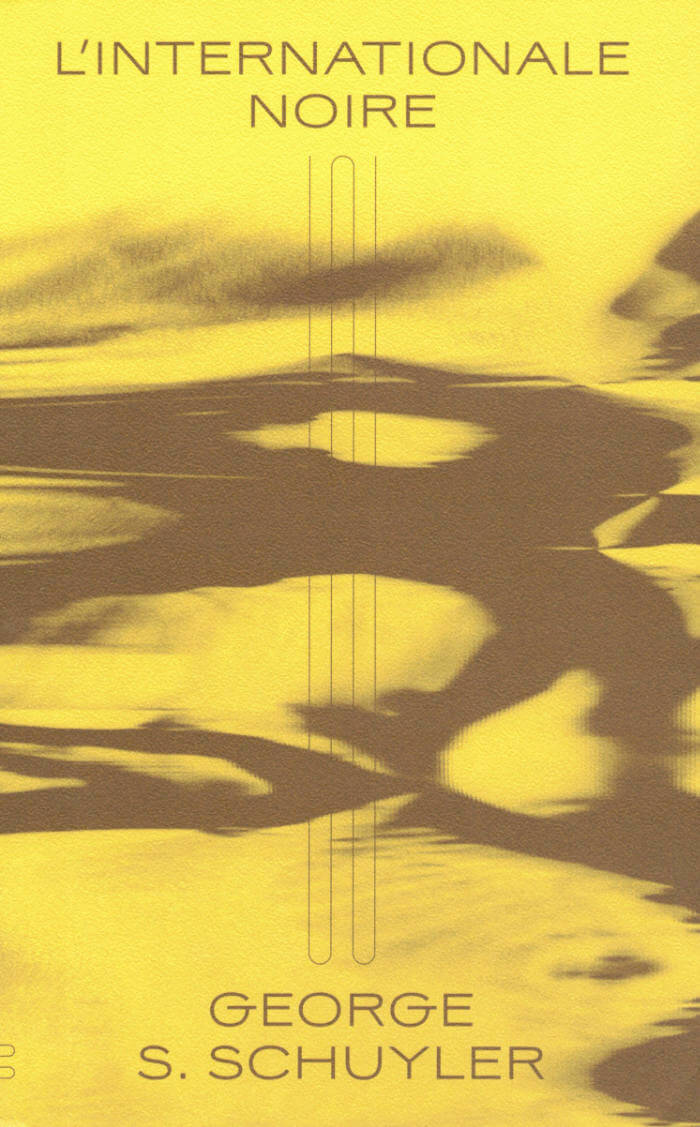
L'Internationale Noire
Années 1930. L’Afrique est sous la férule des puissances impérialistes européennes et la domination blanche s’est étendue à toute la planète. C’est sans compter avec la conspiration tramée par la diabolique Dr Belsidus : son organisation, véritable machine de guerre savamment bâtie grâce aux cerveaux noirs les plus ingénieux, composée d’hommes et de femmes sur tous les continents résolus à mener une lutte sans merci et sans répit, se prépare à changer la face du monde en donnant à l’Histoire un tournant imprévu. Nous voilà embarqués au coeur de l’action avec le journaliste Carl Slater, recrue malgré lui de la redoutable Internationale noire.
Avec ce roman-feuilleton fortement mêlé de science-fiction, George Schuyler, figure éminente de la Harlem Renaissance, explorait dès 1936 les thématiques d’une guerre de libération des peuples de couleur aux dimensions planétaires, et la constitution d’un empire africain. À travers les aventures proprement rocambolesques de ses personnages et l’utilisation de toutes les ficelles du genre, il donna naissance à une satire troublante, un objet littéraire encore non identifié qu’on renconnaîtra plus tard comme un des précurseurs de l’afrofuturisme.
George Samuel Schuyler, 1895–1977, fut un essayiste, journaliste et romancier de première importance dans le monde culturel africain-américain de l’entre-deux-guerres. Il reste connu pour la férocité de ses critiques. Il est l’auteur d’un seul roman, Black No More, traduit en France en 2016 et d’un essai romancé dénonçant la traite au Liberia, produit de son enquête de terrain dans le pays. Proche des courants socialistes jusqu’à la Seconde Guerre mondiale, il prendra un virage nettement réactionnaire par la suite, tout en demeurant dans les mémoires de toute une génération d’écrivains, tels qu’Ishmael Reed ou Samuel Delany.

Twenty Terrifying Tales from our Techno Feudal Tomorrow
William Kherbek’s Twenty Tales from our Technofeudal Tomorrow are of course twenty tales from our technofeudal today. From the software company to the art gallery to the prison to the nature park, here is our scary, scary world as seen through the Kherbekian filter: colors pushed to full saturation, soundtrack ramped up to eleven, video played at 1.1x speed. Luckily, the terror of true realism is laced with wild insights, and the acerbic critique is mercifully cut with Kherbek’s signature raucous hilarity.
"Read this book for its political sagacity and wit, but also for its linguistic extravagance, its jubilant play on every word you thought you knew — down to the last punctuation mark. It’s the kind of funny that makes you smack yourself on the forehead. (But as always, as one character reminds, “keep one hand free for rose.”) We can only hope that some CEO does not pick this book up and take it as an instruction manual." – Elvia Wilk, author of Oval
"Kherbek’s ruthless, dystopian future bears an uncanny resemblance to present-day office politics. Twenty Terrifying Tales from Our Technofeudal Tomorrow is a book that, in true Swiftian style, is written “to vex the world rather than divert it.” – Susan Finlay, author of My Other Spruce and Maple Self
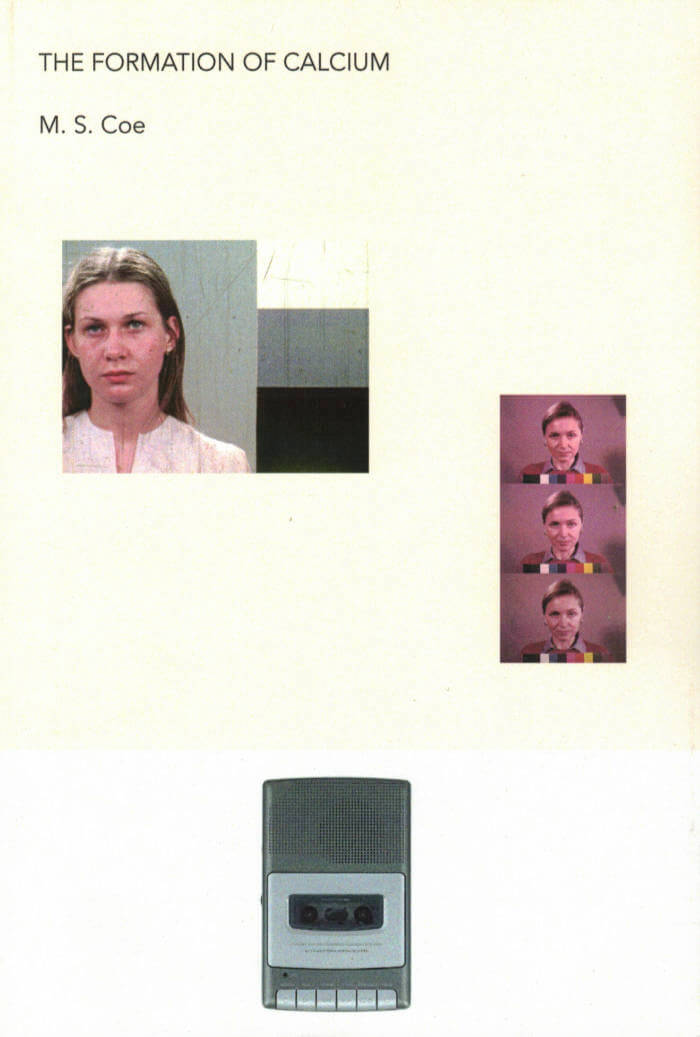
The Formation of Calcium
A horror story of one woman's awful reinvention, M. S. Coe's The Formation of Calcium is disturbingly funny and completely unexpected.
Middle-aged Mary Ellen Washie has finally freed herself of her stultified past life in western New York state and moved to Florida. With the husband she's grown to hate firmly in her rearview mirror, and all ties to her family cut off, she changes her name, bleaches her hair, and befriends Natalie, a seemingly kind, martini-loving woman whom she promptly begins to manipulate. As her machinations propel her beyond the brink of who she used to be, Mary Ellen seeks to unburden herself—but not one to sit down with pen and paper, she narrates the events of her new life into a cassette tape recorder, giving each tape an innocuous name to keep the curious away. A riveting account of one woman's awful reinvention, M. S. Coe's new novel is disturbingly funny and completely unexpected. With elements of pulp noir and confessional literature, The Formation of Calcium depicts the bland misery of modern American life as one woman seeks her own ill-fated transformation.
Born in Las Vegas, Nevada, M. S. Coe is an American writer living in Guadalajara, Mexico. After she graduated with an MFA in creative writing from Cornell University, Clash Books published her first novel, New Veronia, in 2019. Coe's stories have appeared in The Antioch Review, Cosmonauts Avenue, Electric Literature, Nashville Review, Waxwing, and elsewhere. She has held residencies from the Herbert Hoover National Historic Site, Petrified Forest National Park, and Ora Lerman Trust.

Your Love Is Not Good
At an otherwise forgettable party in Los Angeles, a queer Korean American painter spots a woman who instantly controls the room: gorgeous and distant and utterly white, the centre of everyone’s attention. Haunted into adulthood by her Korean father’s abandonment of his family, as well as the spectre of her beguiling, abusive white mother, the painter finds herself caught in a perfect trap. She wants Hanne, or wants to be her, or to sully her, or destroy her, or consume her, or some confusion of all the above. Since she’s an artist, she will use art to get closer to Hanne, beginning a series of paintings with her new muse as model. As for Hanne, what does she want? Her whiteness seems sometimes as cruel as a new sheet of paper.
When the paintings of Hanne become a hit, resulting in the artist’s first sold-out show, she resolves to bring her new muse with her to Berlin, to continue their work, and her seduction. But, just when the painter is on the verge of her long sought-after breakthrough, a petition started by a Black performance artist begins making the rounds in the art community, calling for the boycott of major museums and art galleries for their imperialist and racist practices.
Torn between her desire to support the petition, to be a success, and to possess Hanne, the painter and her reality become more unstable and disorienting, unwilling to cut loose any one of her warring ambitions, yet unable to accommodate them all. Is it any wonder so many artists self-destruct so spectacularly? Is it perhaps just a bit exciting to think she could too?
Your Love Is Not Good stuffs queer explosive into the cracks between identity and aspiration, between desire and art, and revels in the raining debris.
Johanna Hedva is a Korean American writer, artist, and
musician who was raised in Los Angeles by a family of witches, and now lives in LA and Berlin. Hedva is the author of the essay 'Sick Woman Theory', originally published in 2016, which has now been translated into ten languages. Hedva is also the author of the novel On Hell, which was one of Dennis Cooper's favourite books of 2018, and the nonfiction collection Minerva the Miscarriage of the Brain. Their albums are The Sun and the Moon and Black Moon Lilith in Pisces in the 4th House.
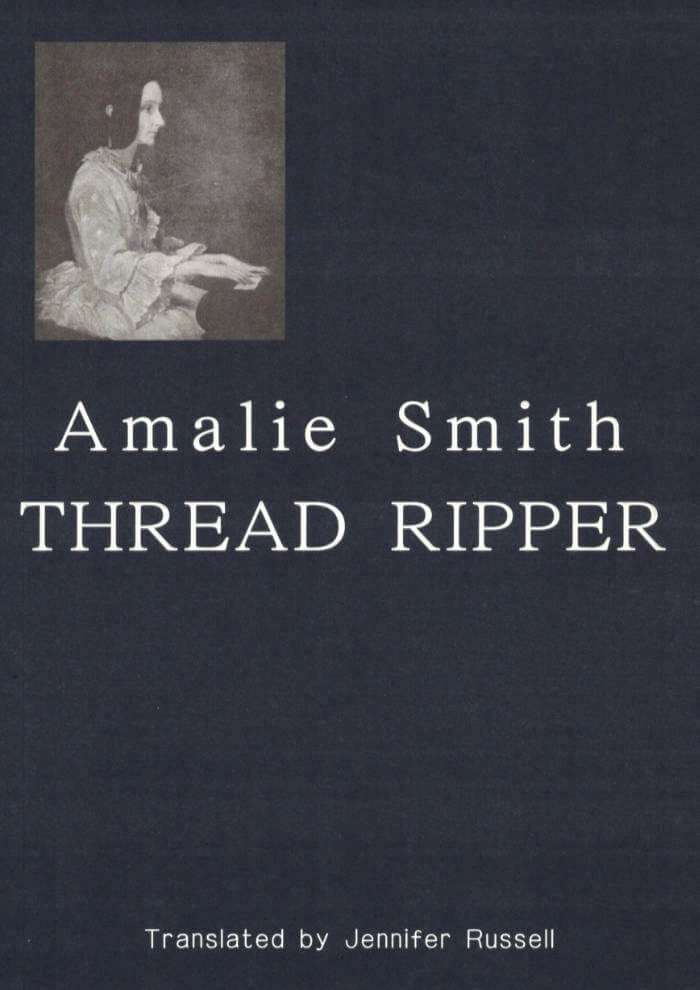
Thread Ripper
An artist in her thirties weaves and unravels connections between the loom and the computer, DNA and technology, dreams and decisions
Thread Ripper is a double-stranded novel about weaving, programming, and pioneering women. A tapestry-weaver in her thirties embarks on her first big commission: a digitally woven tapestry for a public building. As she works, devoting all her waking hours to the commission, she draws engrossing connections between the stuff that life is made from – DNA, plant tissue, algorithms, text, and textile – and that which disrupts it – radiation, pests, entropy, and doubt. In the novel’s second strand, we meet Ada Lovelace, the 1830s mathematician and pioneer of computer programming, and mythical figures such as Penelope, the faithful wife of Odysseus, who wove and unpicked a shroud to put off her 108 suitors.
Contemplative yet clear-sighted, and reviving women’s histories, Amalie Smith’s bracing hybrid of a novel bares the aching interwovenness of art and life.
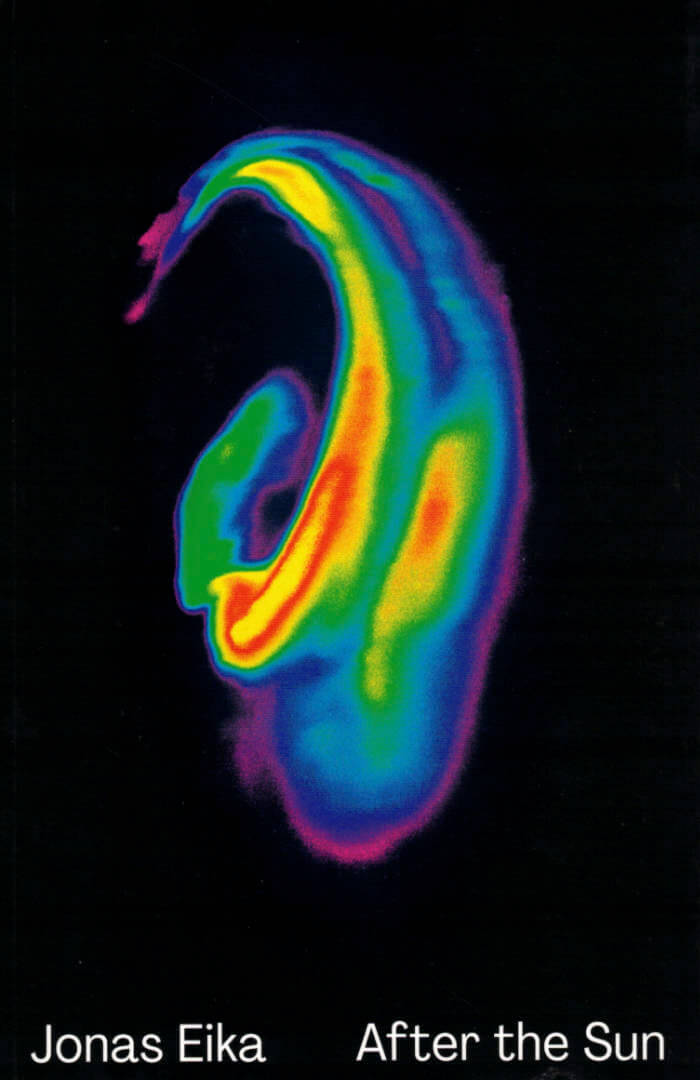
After the Sun
Inventive fiction that probes the tender places where human longings push through the cracks of a breaking world
Under Cancún’s hard blue sky, a beach boy provides a canvas for tourists’ desires, seeing deep into the world’s underbelly. An enigmatic encounter in Copenhagen takes an IT consultant down a rabbit hole of speculation that proves more seductive than sex. The collapse of a love triangle in London leads to a dangerous, hypnotic addiction. In the Nevada desert, a grieving man tries to merge with an unearthly machine.
After the Sun opens portals to our newest realities, haunting the margins of a globalised world that’s both saturated with yearning and brutally transactional. Infused with an irrepressible urgency, Eika’s fiction seems to have conjured these far-flung characters and their encounters in a single breath. Juxtaposing startling beauty with grotesquery, balancing the hyperrealistic with the fantastical, he has invented new modes of storytelling for an era when the old ones no longer suffice.

Interiors
One day in April the body of Owen Beausoleil, a poet, is found drowned. As the investigation begins, three people find themselves haunted by him – Noah Lang, the medical examiner who performed the autopsy; his wife, Kitty Lang, a psychotherapist; and Lolita Hammershøi, a ballet dancer and Owen’s close friend. As the three of them become bound up in the mystery of what happened to Owen, their lives begin to interweave in both expected, and unexpected ways. Meanwhile, Owen intervenes from the after-life, desperate to find out his fate. Interiors is a about how loss and desire shape our lives, and about what waits beyond the borders of everyday life.Jessie Widner’s debut novel Interiors is poised and poetic, a moving account of what happens to the lost inner lives of the people who leave us, ‘the invisible things that expand within the self … that leave no record’. The mood of the novel, an air of trepidation, stayed with me long after I put it down like a ghostly presence, echoing the novel's own fictional haunting.
Jessica Widner is a writer and academic. Her work has appeared in Extra Teeth, Gutter Magazine, and The Cardiff Review. Interiors is her first novel.

Is There Rush Hour in A Third World Country?
Call centre agents and migrant workers, soldiers and charity workers, fresh university graduates and street children — they all navigate the myriad of avenues in which their desires are entangled within the Philippines’ harsh and unforgiving conditions of migration and labour in Rogelio Braga’s collection of stories, Is There Rush Hour in A Third World Country? Now translated by Kristine Ong Muslim into English, the collection offers a glimpse of the lives of ordinary Filipinos, told amidst coup d’états, active conflict areas, late-night convenience store rendezvous, and bumper-to-bumper Manila traffic, given a considered dignity and nuance by one of the Philippines’ celebrated playwrights.
Rogelio Braga is an exiled playwright, novelist, essayist, and a political activist from the Philippines. They had published two novels, a collection of short stories, and a book of plays before they left the archipelago in 2018, borne of the increasing harassment they faced for their critical stance against the administration of then-President Rodrigo Duterte. Their satirical play against the infamous Marcos family, “Ang Mga Maharlika” was also controversial, drawing ire from supporters of current Philippine president Ferdinand “Bongbong” Marcos Junior. Since 2022, Braga has been granted asylum status by the UK, and remains an active human rights advocate to this day.
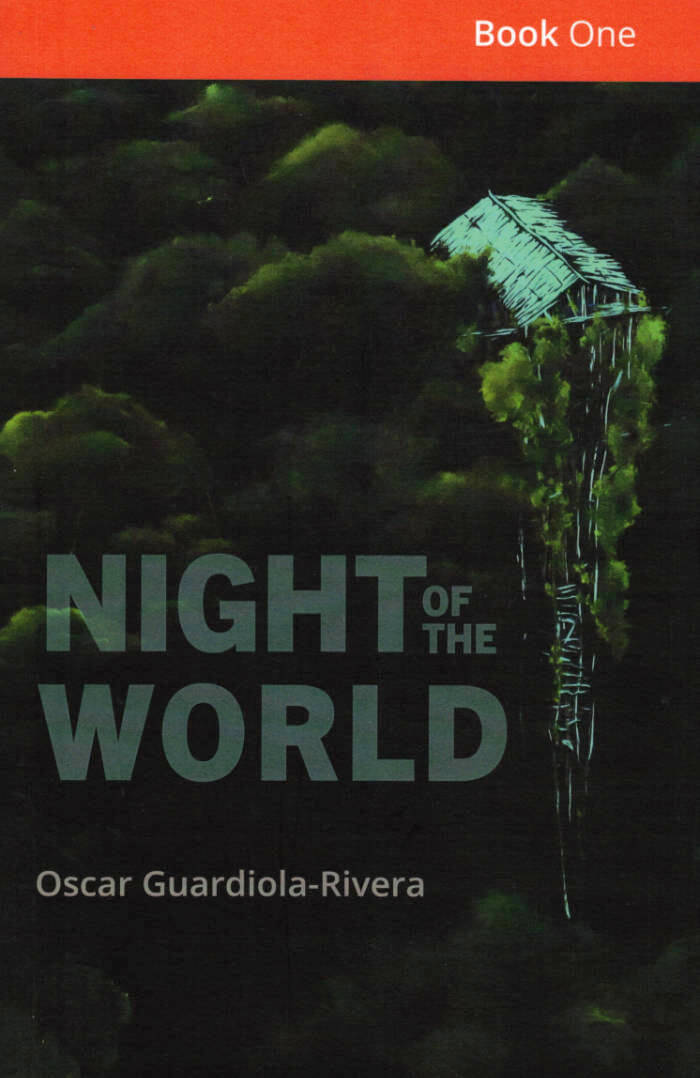
Night of the World: Book One
“This exhilarating novel-poem situated in a dystopian future, is a quest to find out what is distinctive about humankind, a poetic and vigorous praise of reading, knowledge and art as the only way to survive. The Night of the World makes indeed a beautiful, powerful and meaningful reading that stays with you for a long time.” — Cristina Fuentes De La Roche OBE, Hay Literary Festival International Director
Oscar Guardiola-Rivera is the author of two critically acclaimed books, What If Latin America Ruled the World?(Bloomsbury, 2010) winner of the Frantz Fanon Award, and Story of a Death Foretold (Bloomsbury, 2013) shortlisted for the 2014 Bread & Roses Award. More recently, In Defence of Armed/Art Struggle (Bogota: UTadeo, 2019), “A Future for the Philosophy of Liberation” in Decolonising Ethics (Pennsylvania University Press, 2020), and the poem Night of the World (The 87 Press, forthcoming 2021). Professor at the University of London.
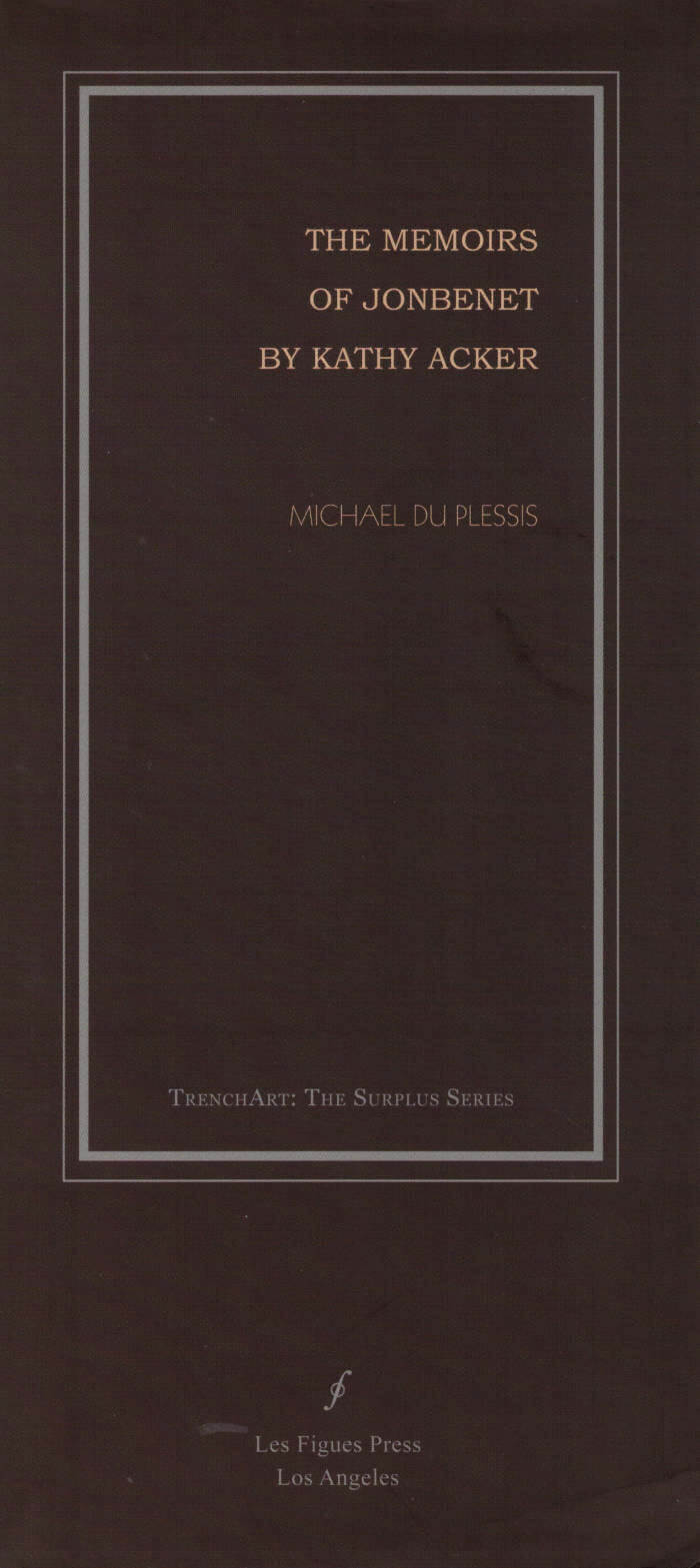
The Memoirs of JonBenet by Kathy Acker
JonBenet meets Kathy Acker in a rollicking coming-of-age tale set in the snow globe of Boulder, Colorado. With guest appearances by Little Lord Fauntleroy, H. P. Lovecraft, the Blue Fairy, a wind-up Walter Benjamin, a soft-toy Cthulhu, O (from Story of O), and many more. Neither tribute nor pastiche, The Memoirs of JonBenet by Kathy Acker investigates the "self" of very-late-capitalism in a collage of all that is right, and terribly wrong, in America.
The Memoirs of JonBenet by Kathy Acker is published as part of the TrenchArt: Surplus Series, with an introduction by Peggy Kamuf and visual art by Klaus Killisch.
Michael du Plessis teaches Comparative Literature and English at the University of Southern California, where he is also completing a masters degree in Professional Writing. Du Plessis has written about a wide variety of subjects, from Goth culture to the French fin-de-siècle. He has also performed at Highways and at the MAK Center/Schindler House, amongst other venues.

Biography of X (hardcover)
When X—an iconoclastic artist, writer, and polarizing shape-shifter—falls dead in her office, her widow, CM, wild with grief and refusing everyone's good advice, hurls herself into writing a biography of the woman she deified. Though X was recognized as a crucial creative force of her era, she kept a tight grip on her life story. Not even CM knows where X was born, and in her quest to find out, she opens a Pandora's box of secrets, betrayals, and destruction. All the while, she immerses herself in the history of the Southern Territory, a fascist theocracy that split from the rest of the country after World War II, and which finally, in the present day, is being forced into an uneasy reunification.

Howdunnit 2 - Panorama
Navina Sundaram is sitting in the editing room in Hamburg. She has managed to reduce the complexity of the Kemal Altun case to the required 2 minutes and 40 seconds for the political magazine; a journalistic feat considering the legal terminology and the international political situation, which must be presented in simple terms. She places her interview with the judge at the back. The audience therefore first gets an impression of perhaps the best-known deportation prisoner of the republic on trial here. The phone rings. I imagine she is displeased about the disturbance. It’s the day of the broadcast; the report still needs to be approved. It rings again. She answers. Peter Boultwood is on the phone and says, “Did you hear? Kemal jumped out of the window in the courtroom. He’s dead.”
Merle Kröger lives in Berlin where she works as a novelist, screenwriter and dramaturg. She was a member of the Berlin film collective dog film (1992–1999) and founded pong lm in 2001. Kröger is the co-author of Philip Scheffner’s internationally awarded films Revision (2012), Havarie (2016) and Europe (2022). Kröger has published five novels to date, including Grenzfall (2012), Havarie/ Collision (2015) and Die Experten/ The Experts (2021). Her novels have received numerous awards, including Best Crime Novel of the Year, the Radio Bremen Prize for Crime Fiction and the German Crime Fiction Prize.
Translated by Rubaica Jaliwala